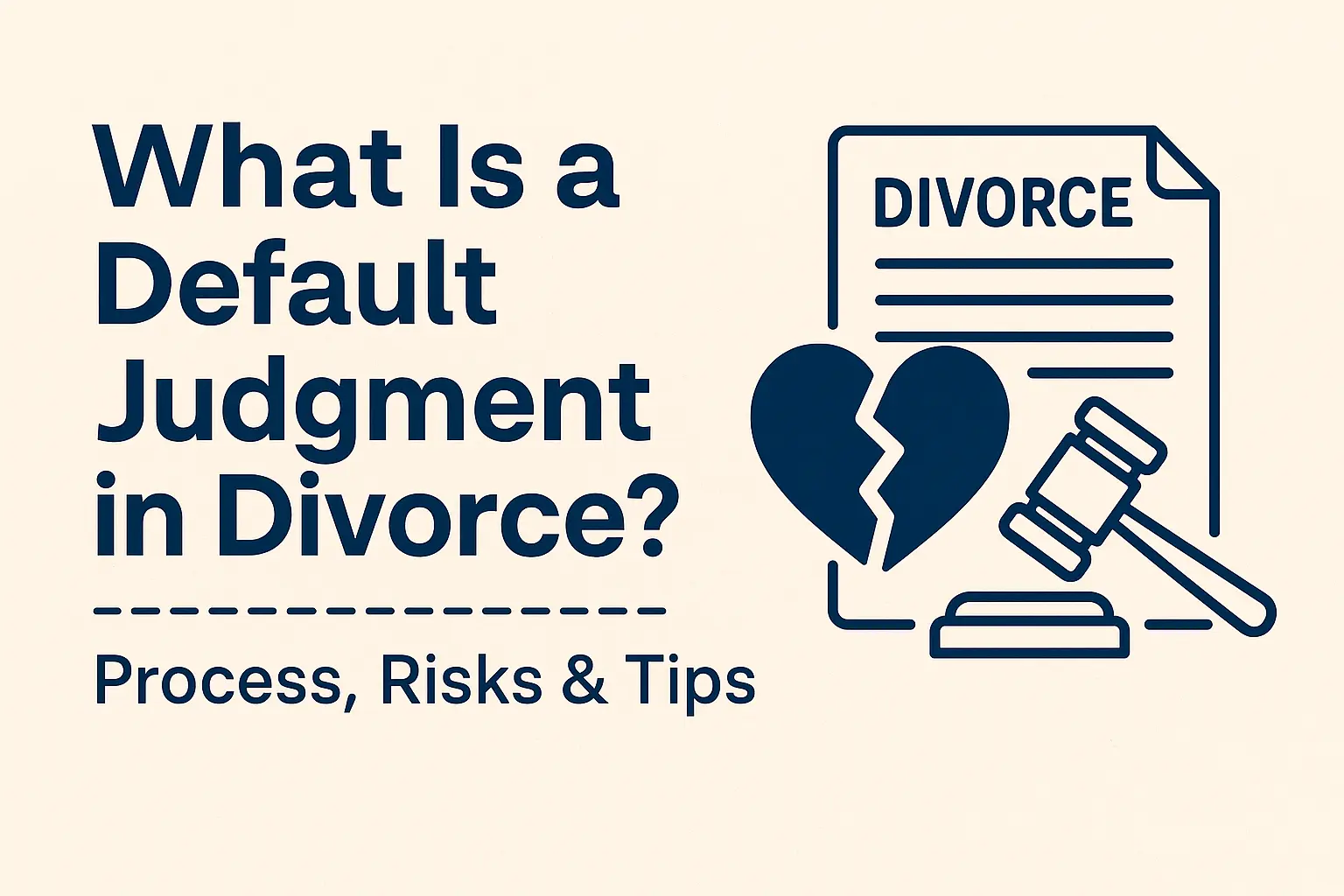There are plenty of reasons to elect for legal separation instead of divorce. Understand the difference to figure out what’s right for you.
The breakdown of a marriage can be incredibly stressful. Trying to figure out what’s next might feel like an impossible decision. However, once it becomes clear your marriage isn’t working out, you face a choice: whether to get a legal separation or a divorce.
🛡️ Key Difference at a Glance
Legal Separation
- Legally married, living apart
- Court-approved agreement covers assets, debts, child/spousal support, custody
- Retains benefits (health insurance, taxes, Social Security eligibility)
- Can be reversed; easier to reconcile
Divorce
- Marriage officially ends
- Court-finalized property division, custody, support, debt responsibilities
- Ends marital benefits and legal status
- Irreversible without remarriage
🤔 Why Choose Separation Over Divorce?
📄 Legal requirements – Some states require separation before filing for divorce
💸 Benefit preservation – Maintain insurance, joint tax filing, Social Security benefits
🧘 Test the waters – Gives time to assess reconciliation without major commitments
🙏 Religious or personal beliefs – Avoid divorce due to moral concerns

⚖️ What Happens During Each Process?
| Feature | Legal Separation | Divorce |
|---|---|---|
| 🏷️ Marriage Status | Married | Single (once finalized) |
| 📜 Court Order | Separation Agreement | Divorce Decree |
| 👨👩👧 Support/Custody | Court-approved terms still apply | Legally binding per divorce decree |
| 💰 Property & Debts | Assigned, but status remains joint | Divided permanently |
| 💍 Remarriage | Not allowed | Permitted |
📄 Separation Agreements: What You Need to Know
When couples decide to live apart but aren’t ready (or required) to divorce, a Separation Agreement can be an essential legal tool. This document outlines how you’ll handle important issues while you’re separated—and provides a clear roadmap that protects both parties.
💡 What Is a Separation Agreement?
A Separation Agreement is a legally binding contract between spouses who want to live apart. While staying legally married, you can:
✅ Define property division
✅ Set child custody and visitation schedules
✅ Agree on child and spousal support
✅ Clarify responsibility for debts and expenses
✅ Establish rules for future decision-making
Why is this important?
Because without a written agreement, misunderstandings and disputes can quickly escalate—especially about finances or parenting.
⚖️ Key Elements to Include
Here are the most common provisions a Separation Agreement covers:
🏡 Property and Assets
- Who remains in the family home
- How personal property (cars, furniture, bank accounts) will be divided
- Whether the couple will continue joint ownership
💵 Do I Have to Pay Alimony or Child Support While I’m Separated?
Short Answer:
✅ Yes—if you and your spouse agree to it in a separation agreement or if a court orders it.
When you separate, you still share financial responsibilities—especially if you have children. Here’s how it typically works:
🧾 Child Support
📌 Child support is usually required if you have minor children living with your spouse.
- Amount: Based on your income, the number of children, and state guidelines.
- How It’s Set: You can agree on an amount in your separation agreement or ask the court to issue a temporary order.
- Enforcement: Once it’s formalized, the court can enforce payment just like in a divorce.
💰 Alimony (Spousal Support)
📌 Alimony (also called spousal maintenance) may be required if one spouse needs financial help.
- Amount & Duration: Determined by agreement or the court based on income, length of marriage, and other factors.
- Temporary Orders: Courts often issue temporary spousal support orders to maintain living standards during separation.
📍 Texas-Specific Note
Texas does not recognize legal separation.
Instead, you can create a post-marital agreement to divide property and set responsibilities without divorcing.
⚖️ Important Considerations
✅ Even if you’re not divorced, a judge can issue temporary orders covering:
- Child support
- Spousal support
- Use of property (like the marital home)
- Custody and visitation
✅ In Texas, because there is no formal legal separation, you’d typically get a temporary orders hearing instead to address support obligations until the divorce is finalized or you reconcile.
🙋 Frequently Asked Questions
❓ Does a legal separation make me single?
✅ No. You remain legally married—cannot remarry until divorced.
❓ Can I keep health insurance during separation?
✅ Yes. Many plans allow coverage during legal separation, but you must confirm with your insurer.
❓ Does legal separation require court involvement?
✅ Yes. Like a divorce, you must file paperwork and have agreements approved by a judge.
❓ Is there a waiting period for divorce?
✅ Yes. In Texas, there is a 60-day waiting period after filing before a divorce can be finalized.
❓ Will separation impact child custody or support?
✅ Absolutely. A separation agreement can establish custody, visitation, and support arrangements.
🚀 Need Help Setting Up Support Arrangements?
Whether you’re planning a temporary separation or transitioning to divorce, getting clear agreements in place is essential.
👉 Schedule your free consultation to understand your rights and obligations before you separate.





